Comeaux is the third consecutive outsider chosen to lead Dallas police.

Dallas’ next police chief is Daniel Comeaux, a federal law enforcement leader from Houston who has specialized in drug enforcement for three decades.
City Manager Kimberly Bizor Tolbert announced Friday that Comeaux beat four other finalists, including interim Chief Michael Igo, to become the Dallas Police Department’s 31st leader. His selection caps a three-month national search to replace former Chief Eddie García, a popular official who left last year for Austin city management.
In a city news release, Comeaux said he joined police because he “witnessed what can happen to neighborhoods that aren’t safe.”
“At the federal level, I am known as the local cop because of my collaborative approach to tackling crime and my dedication to developing leaders in public safety who are bridge builders for the community,” Comeaux said. “I am proud that my career in law enforcement has come full circle and look forward to serving alongside the men and women of the Dallas Police Department.”
He starts in the role April 23. He declined to immediately comment but told The Dallas Morning News he looks forward to meeting everyone on April 21, when he is expected to address questions during a news conference.
Comeaux is the third consecutive outsider chosen to lead Dallas police, following García and U. Reneé Hall. He serves as special agent in charge of the Drug Enforcement Administration’s Houston Division, where he oversees about 700 agents in 12 offices across Texas, including 645 miles of the U.S.-Mexico border.

He will now manage a $719 million budget as leader of the nation’s ninth largest police department, made up of about 3,100 sworn officers and 600 civilian employees.
His position in Dallas won’t be without immediate challenges. He will face mounting pressure to hire about 900 more officers in adherence to a new city charter mandate. He will be tasked with maintaining declines in violent crime, navigating a $3 billion shortfall in uniformed and civilian pension funds, configuring plans for a new academy for police recruits and balancing community trust with federal and state immigration demands.
In the Friday news release, Tolbert said Comeaux has “consistently demonstrated a proven track record of successfully addressing complex crime challenges across large scale, diverse populations and geographic areas — that span internationally.”
She pointed to Dallas’ annual reductions in crime in recent years.
“I am confident with SAC Comeaux at the helm, we will continue to be one of the safest large cities in the country, while building trust, and bolstering our recruitment and retention efforts,” she said.
Comeaux started his career as a local cop with the Houston Police Department in 1991, then transitioned to the DEA about six years later. He has said his priorities in Dallas would be to enhance recruitment, implement innovative crime-fighting tactics and strengthen public trust.
Originally from Louisiana, Comeaux told The News during a meet and greet last week he has always wanted to serve in a large city.
“Being a former Houston policeman, I felt like it was a perfect fit for me,” Comeaux said.

He wants to keep violent crime in Dallas down and work on officer morale and internal police culture.
The city would not answer how much Comeaux will be paid, referring a reporter to file an open records request.
Tolbert made hiring new police and fire chiefs a major priority in her first 100 days as city manager, and their successes or failures will likely be seen as inextricably tied to her leadership.
Her choice of Comeaux, rather than a homegrown commander, indicates substantial change for the police department instead of a continuation of the status quo.
Who is Comeaux?
A 2021 profile in The Houston Chronicledescribed Comeaux as a baseball fanatic who grew up eyeing a professional career in the sport. After an injury, though, a cop — who was the father of Comeaux’s classmate at Texas State University — encouraged him to become an officer.
Comeaux grew up in a neighborhood that distrusted police, according to the article, but he became intrigued by the prospect. After he joined Houston police, he quickly maneuvered to the narcotics division and “was known for a relentless competitive drive,” the Chronicle reported.

Comeaux left policing to join the DEA because it paid better, the newspaper reported, but he was transferred from Houston to California after his bosses were told a Houston police officer Comeaux had arrested was threatening his life.
Throughout his career, Comeaux has led operations targeting violent crime and drug trafficking in Houston, San Francisco and Los Angeles and is credited with a 40% decrease in overdose deaths in Laredo, according to Dallas officials.
He has experience navigating the media spotlight and is seen as well-connected in Texas.
Multiple Dallas officials and police brass had seen Igo, the interim chief, as the front-runner from the start of the city’s search for a new top cop. Tolbert said at the meet and greet last week that she hoped to name the new police chief by early this week.
Uncertainty grew as days passed without an announcement.
Igo canceled appearances at two public events he was scheduled to attend early in the week. On Thursday, the city announced the new fire chief — Justin Ball, who’d been in the interim role — despite starting that search later than the police chief’s.
Recent months had tested Igo’s public speaking and navigation of City Hall politics and community concerns. He faced scrutiny last month after he said Dallas police are “not assisting any federal agency” in detaining people for immigration violations, which spurred national criticism and a probe by Texas Attorney General Ken Paxton. Igo later clarified that comment.

Igo declined to comment Friday on Comeaux’s hiring. Tolbert thanked him in the news release announcing Comeaux, noting Igo’s “longstanding service to the Dallas Police Department, and his willingness to lead during this time of transition.”
Comeaux was chosen from 25 applicants, a smaller pool than the 36 in 2020 when García was picked. The finalists he competed against were Igo, Carrollton Police Chief Roberto Arredondo, former FBI Assistant Director Brian Boetig and Dallas police Assistant Chief Catrina Shead.
Surprise, but also welcomes
Police officials welcomed Comeaux but several said the news came as a surprise.
The department hasn’t had an internal candidate become chief since David Brown in 2010, and García, the former chief, has been vocal about how the next top cop should come from within the department.
Dallas Police Association president Jaime Castro said the organization welcomes Comeaux and looks forward to working with him on the department’s “enormous challenges,” including the pension crisis, the upcoming budget, plans for a new police academy and security for the World Cup next year.
Even so, Castro said, officers “were led to believe” the next chief would be internal.
“We trust the decision that was made is the correct one for the city and the department, but at the same time, you can’t avoid the question of: Does our current command have a future with DPD?” Castro said.
“You had a candidate,” he added, referencing Igo, “who has been a loyal member to the department and has risen through the ranks and done an amazing job, yet the question remains: What else can I do to be the next internal Dallas police chief?”
Juan Hernandez Jr., president of Dallas’ National Latino Law Enforcement Organization, said many officers assumed Igo would be chosen. They’re surprised, he said, that the city decided on someone from the federal government, which hasn’t ever occurred as far as he can remember.
“To us, to any officers here, it’s gonna be a learning curve to see how that happens or that goes,” Hernandez said.
Still, the police association leaders were impressed by Comeaux’s ideas during a panel interview. Hernandez said Comeaux had good ideas to engage the community and to recruit and retain police. Castro said it was clear he’d educated himself on the challenges facing the department.
“He did say he did not believe DPD was broken,” Castro said, “but needed some fine adjustments to keep it on the right path.”
Andre Taylor, president of the Black Police Association of Greater Dallas, said the group supports Tolbert’s decision and looks forward to working with Comeaux. Jennifer Atherton, president of the Dallas Police Women’s Association, echoed that sentiment.
“We are optimistic that, under his leadership, we are embarking on a journey toward creating a stronger and more inclusive future for the Dallas Police Department,” she said. “Our dedication to serving and protecting the Dallas community remains steadfast, and we eagerly anticipate this exciting new chapter.”
City officials’ reaction
Dallas Mayor Eric Johnson said in a written statement that Comeaux’s appointment comes at a pivotal time. The city will need to continue its momentum of declining violent crime, which will not be easy, the mayor said.
Comeaux, he said, will bring unique experience as a former Houston cop and a commander who has fought illicit drugs like fentanyl in urban neighborhoods and border communities.
“Dallas needs Chief Comeaux to be a dynamic leader who can thoughtfully and resolutely work to keep our citizens safe every single day,” Johnson said.
Michele Andre, Dallas’ police oversight director, applauded Tolbert and said the appointment marks “a pivotal step toward our shared vision of equitable and community-centered policing in Dallas.” She said she was impressed by his ideas to engage the community and use technology to improve police response times.
Deputy Mayor Pro Tem Adam Bazaldua said the selection shows the process was competitive and fair, and allowed Tolbert to make her mark on what the role should accomplish. He hopes to see from Comeaux an intent to improve department culture, adding residents regularly complain about police response times.
Comeaux should look into adding more neighborhood patrol officers and restructuring resources to show a better presence, Bazaldua said.
“We have a lot of issues that need to be addressed and be improved on,” the deputy mayor pro tem said. “There are some low hanging fruit that I think this new chief has the opportunity to come in and make changes to see tangible results.”
Council member Gay Donnell Willis said she was impressed by Comeaux’s experience and energy when she met him.
His background, she said, “will position Dallas well for continuing a downward trajectory of violent crime, while also addressing neighborhood concerns like speeding and red-light running.”
Staff writer Devyani Chhetri contributed to this report.
By Kelli Smith
Kelli covers public safety and the Dallas Police Department for The Dallas Morning News. She grew up in El Paso and graduated from the University of Notre Dame with degrees in political science and film and a minor in journalism. Before joining the staff, she reported for the Chicago Tribune and KTSM, the NBC affiliate in El Paso.

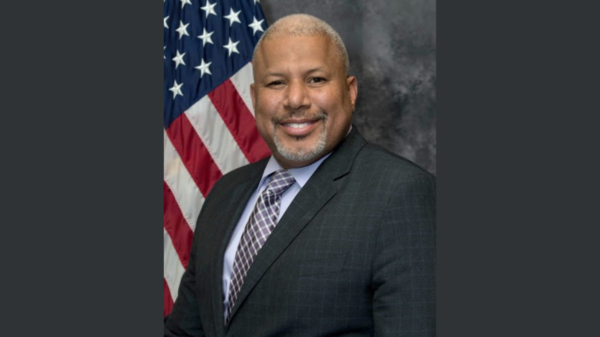
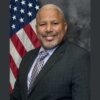
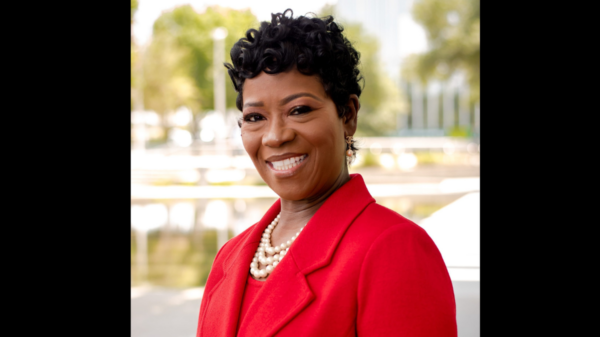
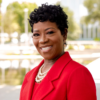
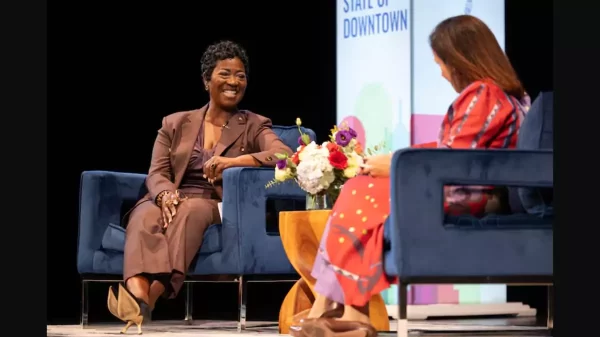



You must be logged in to post a comment Login